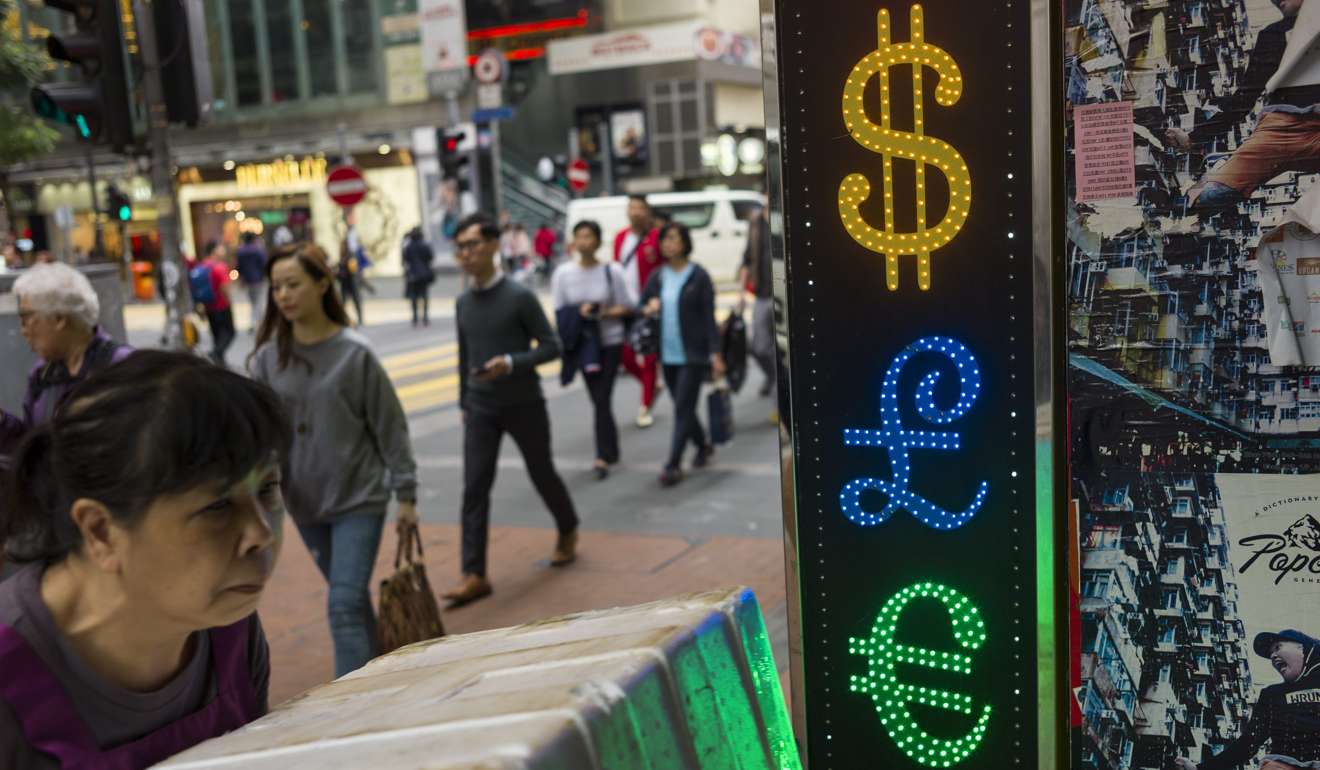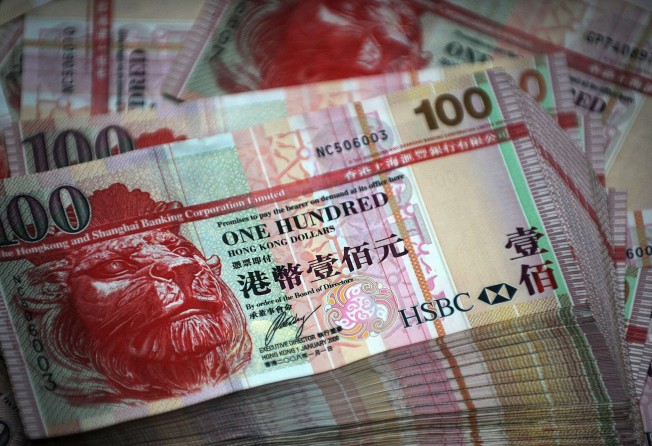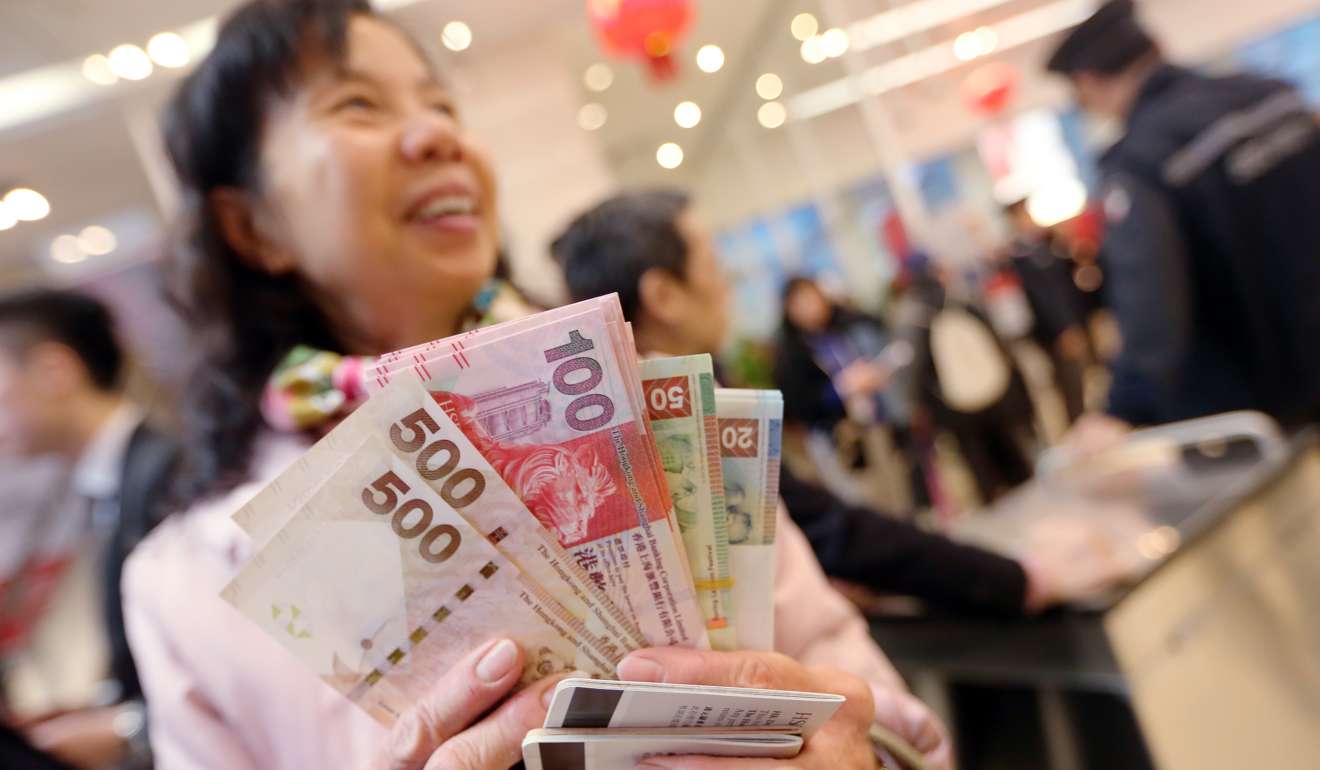
To peg or not to peg? That is the question for the Hong Kong dollar
The city’s currency has been loyally linked to the US dollar for 34 years – but again that’s being questioned. Could the renminbi now become a more likely new partner?

For 34 years, the Hong Kong dollar has been pegged to its counterpart in the United States at around HK$7.8, with a current trading band of HK$7.75-7.85.
Roughly 40 per cent of the city’s population have known no other value for their local currency, but that doesn’t stop the debate among analysts and observers about the peg’s merits.
Globally, at least 50 currencies are pegged to a major unit: around half to the US dollar, while others, mostly those of micro-states, are mainly linked to the British pound, the euro, South African rand and Australian or New Zealand dollar.
Pronouncements of the imminent demise of the peg in Hong Kong are as regular as clockwork and on March 15, as the Federal Reserve announced a rise in benchmark interest rates, its third since the financial crisis and only three months on from the last increase, attention in Hong Kong turned once again to the tie-up.
The link was also thrust into the spotlight in September 2016 when the renminbi was included in the basket of currencies that makes up the International Monetary Fund’s de facto currency, in December 2015 when US interest rates rose for the first time in almost a decade, and throughout 2014 when Beijing was pushing the renminbi’s internationalisation.
The Hong Kong Monetary Authority (HKMA) resisted speculative pressure on the peg during the financial crisis of 2008, the SARS outbreak in 2003, and the Asian financial crisis of 1997.
“Investors have occasionally questioned whether the currency board is the most-suitable currency framework for Hong Kong and this has prompted speculative pressures on the Hong Kong dollar in the past,” wrote Claudio Piron, managing director, global research at Bank of America Merrill Lynch in Singapore, in a research report released by the bank in January.

Macroeconomic concerns have traditionally underpinned opposition to the peg. In 2012, former HKMA chief executive Joseph Yam, a pivotal figure in its creation and defence, suggested a switch to a more flexible currency regime similar to that of Singapore, arguing the US and Hong Kong are too economically different for a peg system.
“Those in Beijing are realists,” adds Steve Hanke, professor of applied economics at Johns Hopkins University in Baltimore and an architect of currency boards established in Indonesia and elsewhere. “Why would they [The Chinese government], or anyone in Hong Kong, want to give up a link to the world’s premier international currency?” he says.
Peter Churchouse, a former managing director at Morgan Stanley who now sits on the board of Hysan Development, points to the so-called ‘impossible trinity’ – an economic trilemma that states it is impossible to maintain a stable exchange rate, independent monetary policy and free capital movement simultaneously – and argues policy makers must decide which two they wish.
Those in Beijing are realists. Why would they, or anyone in Hong Kong, want to give up a link to the world’s premier international currency?
He essentially argues the peg means Hong Kong has given up control over its own interest rates, and hence its independent monetary policy.
Some of the most difficult arguments lie in the property market, but Richard Harris, CEO of Port Shelter Investment Management, reckons that as much as anything, it is mainland Chinese demand for Hong Kong property that is driving prices.
Hong Kong’s broader economy, which has been dealing with heated inflows, also now faces the risk of continuous outflows.
But the next threat to the peg may be more about politics than economics.
The election of Donald Trump on an anti-globalist agenda, together with the Brexit vote, has upended global economic forecasts and cast a pall over the future of worldwide trade.

Trump’s China rhetoric look to have added some fuel to the debate about Hong Kong’s relationship with the US.
There is also the fact that China is the world’s second-largest holder of US treasuries, holding US$1.05 trillion as of January, and it is Asian countries that still fund huge US deficits.
Any geo-political shock, such as further provocation by North Korea, would see the US dollar “sky rocket”, and such swings would have to be absorbed by Hongkongers, says Harris.
“We could be in for a couple of years of a strong dollar,” he adds. But what happens after the sugar rush of tax cuts and spending surges?
As with many things in Hong Kong’s future, Beijing’s views on the peg will weigh heavily.
In a poll of business executives in China and Hong Kong conducted last year by the London Business School and Hong Kong University, 62 per cent reckoned the Hong Kong dollar would simply be phased out eventually, as the renminbi internationalised.
The renminbi is considered the most likely currency to constitute a hypothetical new peg, or at least be part of a trade-weighted group of currencies.
Any speculation about removing or even adjusting the peg is always going to be firmly denied by the government and the HKMA, while some analysts agree with the need not to show a hand too early, to reduce risk of speculation by currency markets on upcoming changes.
Hanke at Johns Hopkins University is betting the peg will stay for the foreseeable future.
“The HKMA and government do exactly what they should do to maintain a credible commitment to a fixed exchange rate,” he says.
“The authorities have learned their lesson from Ulysses: Tie yourself to the mast so you can’t be lured to your death by the sirens’ song.”
This is the excerpt of an article published in the April issue of The Peak magazine, available at selected bookstores and by invitation